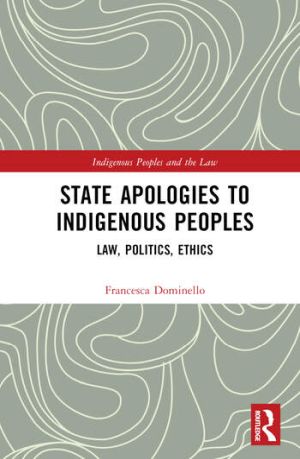
This book considers the ethics and politics of state apologies made to Indigenous peoples.
The prevalent tendency to treat an apology as a speech act has maintained the focus on the state leader making the apology and not on the victims’ claims. This book demonstrates the inherent shortcomings of this approach through an examination of apologies delivered to Indigenous peoples in Australia and Canada. Contrasting the texts of different apologies with the responses of Indigenous peoples to them, the book considers how they are shaped by state norms regarding might be accepted as a wrong. In response, the book develops an understanding of apology as a relational process, which involves engaging Indigenous peoples in a dialogue to address past injustices. Stressing the importance of Indigenous perspectives in fulfilling the transformative promise of ‘never again’, which an apology represents, the book concludes by considering this process in relation to key proposals currently being pursued by Indigenous peoples in Australia and Canada.
This book will be of considerable interest to scholars and students in the fields of Law, Indigenous studies; forgiveness studies; transitional justice; politics and postcolonialism.